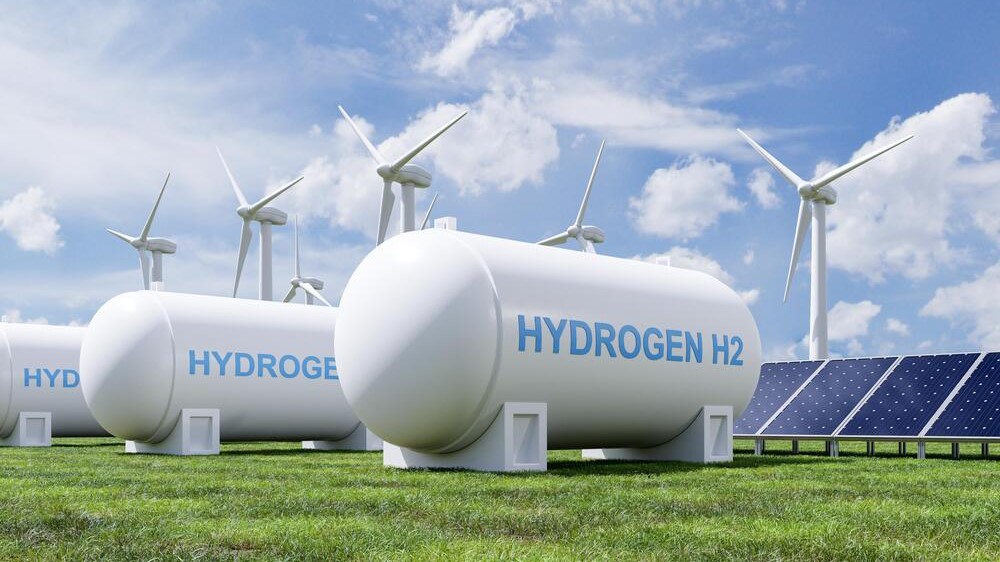Kutch in Gujarat is a crown jewel in the port sector of not just the State but the entire country too. Deendayal port (DP) in Kandla, a major port under the control of the Centre, and the Adani group’s Mundra port have contributed in huge measure to the region’s prosperity. The two ports, separated by 75 km, together handled 476 million tonnes (MT) of cargo — Mundra 339 MT; and DP 137 MT — in 2022-23.
An added boost to the region’s economic development is the upcoming green hydrogen hub with massive investment from both ports — nearly ₹1.45 lakh crore from DP and $50 billion from the Adani group — over the next ten years, depending on market conditions.
At the Global Maritime India Summit 2023, held in Mumbai in October, the Deendayal Port Authority (DPA) entered into 13 memorandums of understanding (MoUs) with leading companies engaged in the development of green hydrogen, its derivatives, and associated infrastructure. Some of the prominent names include ReNew E-Fuels; Statkraft India; Welspun New Energy; Sembcorp Green Hydrogen India; Hygenco Green Energies; Torrent Power Ltd; NTPC Green Energy; and Greenko ZeroC.
The Adani group, on its part, has set up a wholly owned subsidiary called Adani New Industries Ltd (ANIL) to invest in backward integration as part of its planned green hydrogen venture. It is developing end-to-end solutions to produce green hydrogen and its associated sustainable derivatives at scale.
The first project for the production of 1 MTPA green hydrogen is being implemented in phases in Gujarat, with production from the initial phase expected by FY2027. ANIL aims to increase its green hydrogen capacity to 3 MTPA over the next 10 years.
ANIL’s green hydrogen generation includes production of downstream derivative products such as green ammonia, green methanol, and sustainable aviation fuel, among others.
The setting up of green hydrogen manufacturing, storage, and bunkering facilities may enable Indian ports to increase direct port calls as shipping lines may prefer a source of clean fuel for their onward journey, thereby aiding overall reduction in emissions, Mehta said.
Green hydrogen is seen critical for the country’s future energy security. Currently India spends over $160 billion on energy imports, which are likely to double in the next 15 years without an alternative solution. With the approval of the Kutch projects, the stage is set for India to become a global champion of green hydrogen production, a government release said a year ago.
Addressing the nation on its 75th Independence Day, Prime Minister Narendra Modi had announced the National Hydrogen Mission to make India a hub for the production and export of green hydrogen. India is at a crucial juncture in its energy transition efforts and green hydrogen is expected to play a critical role in achieving self-reliance in energy supply.
On January 4, 2022, the National Green Hydrogen Mission was approved by the Union Cabinet. By 2030 the plan is to develop green hydrogen production capacity of at least 5 MTPA, with an associated renewable energy capacity addition of about 125 GW at an investment of over ₹8 lakh crore. It will lead to a cumulative reduction in fossil fuel imports by over ₹1 lakh crore and abatement of nearly 50 MT of annual greenhouse gas emissions, the release said.
It would be interesting to see who will be the first mover — DP or the Adani Group — in setting up a green hydrogen project.
Tags: Deendayal port, Green Hydrogen Mission, Gujarat, Mundra



Recent Posts
Scandlines Nears Delivery of Zero Emissions Ferry Following Successful Sea Trials
India faces emission roadblocks with rising net-zero demands
Green Energy Resources invests in two electric Liebherr LHM 550
NYK Launches Continuous Use of Bio LNG Fuel on Car Carriers to Advance Decarbonization Goals
Yang Ming Expands Fleet with Methanol and LNG Dual-Fuel Vessels Under Fleet Optimization Plan
ClassNK Advocates Speed Gap Monitoring to Optimize Fuel Efficiency in Heavy Weather
Wärtsilä’s retrofit package for the Corsica Linea ferry Pascal Paoli has resulted in fuel savings of up to 22 percent Corsica Linea
COSCO Shipping Names Second Methanol Dual-Fuel Containership in Yangzhou